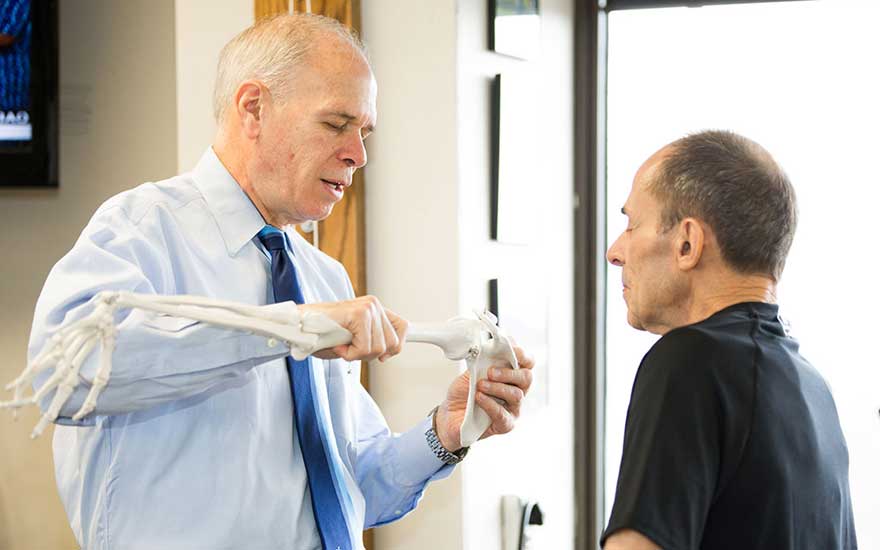
All physical therapists are qualified through higher education, clinical experience, and licensure to evaluate, diagnose, and treat a variety of symptoms and conditions. Many choose to focus their practice on a specific area or patient group and obtain advanced knowledge and experience in physical therapy specialty areas. Some attend residency programs, obtain board-certification, or go on to participate in fellowship programs. Learn more about these advanced learning pathways in physical therapy specialty areas.
Orthopedic (sometimes spelled orthopaedic) physical therapists help to prevent disability and provide physical rehabilitation for people with pain, injury, or disease of the muscles, bones, or joints that limit mobility. Orthopedic physical therapists diagnose, manage, and help prevent various musculoskeletal disorders. They are experts in assessing movement problems and assist their patients and clients to move better, often with less pain, through a variety of techniques, patient education, and prescribed movement. Orthopedic physical therapists practice in many settings, including:
- Outpatient clinics.
- Rehabilitation facilities.
- Hospitals.
- Homes.
- Sports clinics.
- Work sites.
- Schools, colleges, and universities.
Orthopedic physical therapists often provide evaluation and treatment to help people of all ages manage:
- Back pain, neck pain, and joint disorders caused by diseases and injuries.
- Rotator cuff injuries and other shoulder problems.
- Osteoarthritis.
- Plantar fasciitis (foot and heel pain).
- Recovery from bone and joint surgery.
- Muscle strains.
- Joint sprains, pain, and swelling, including knee pain, and knee and ankle injuries.
- Chronic pain.
- Tennis elbow and golfer's elbow.
- Carpal tunnel syndrome.
- Temporomandibular joint disorders.
- Workplace wellness, injury prevention, accommodation, or disability management outcomes.
Looking for a physical therapist who focuses on or specializes in orthopaedic physical therapy or who is experienced in treating people with musculoskeletal (muscle, bone, joint) problems? The American Physical Therapy Association provides Find a PT to help you search for a physical therapist with these and other credentials near you.
Physical therapists are movement experts. They improve quality of life through hands-on care, patient education, and prescribed movement. You can see a physical therapist without a physician's referral for evaluation and treatment.*
Learn about board certification in orthopaedic physical therapy.
*Insurance and corporate policies or state laws may still require a physician's referral or limit treatment scope and duration without a referral. Insurance policies also may limit you to in-network providers.


